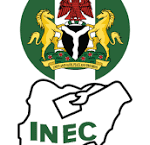FG to Empower 3 Million Nigerian Women with Clean Energy Technologies

The Minister of Power, Mr. Adebayo Adelabu, has pledged on behalf of the Federal Government to stabilize the power sector by empowering 3 million Nigerian women with clean-energy technologies by 2027.
The pledge was made during a stakeholder meeting convened by the Ministry of Women Affairs in Abuja with the theme “PowerHer 774 – End Energy Poverty for Women”.
The event brought to the fore a new target of courage to empower 3 million Nigerian women with clean-energy solutions, with priority given to rural and poor communities where conventional cooking methods subject women to deadly indoor air pollution. The Minister of Power noted that priority for women remains an imperative because energy scarcity limits their economic opportunities and access to productivity-boosting inputs.
The Ministry of Power, through the Rural Electrification Agency, will disperse these technologies in people-centric projects, including decentralized renewable energy systems, solar home kits, clean-cooking schemes, and productive appliances for households, small businesses, and farms. To empower women at scale, the ministry has created a dedicated gender unit to incorporate women’s unique energy needs into all projects.
The Minister of Women Affairs, Imaan Sulaiman-Ibrahim, cited the human cost of energy poverty, quoting the scary statistic that 80,000 Nigerian women die prematurely annually from toxic smoke emanating from firewood and traditional cooking fires. She noted these are avoidable, unfair, and have to end, and called on the ministry to eliminate energy poverty for women across all 774 local government councils.
The Minister of Women Affairs unveiled a vision for a “women-led, data-driven revolution” to bring life-saving, life-changing clean-energy solutions for the whole country. The effort involves initiating a first-of-its-kind women-designed, women-led clean-energy revolution by the Ministry of Women Affairs. The ministry will create a clean-energy national ecosystem that engages ministries, financial institutions, local manufacturers, global tech firms, women’s cooperatives, and development agencies to connect policy to people, innovation to impact, and gender to growth.
The Minister of Women Affairs clarified that the circumstance could not be overstressed, and that the time for action is now. “These 80,000 women are not figures – they are mothers, breadwinners, constructors of the nation. Their deaths are preventable, unfair, and must cease in our time,” she added. The commitment of the ministry to empowering 3 million Nigerian women with clean-energy solutions is a major step towards eradicating energy poverty and sustainable development in Nigeria.








